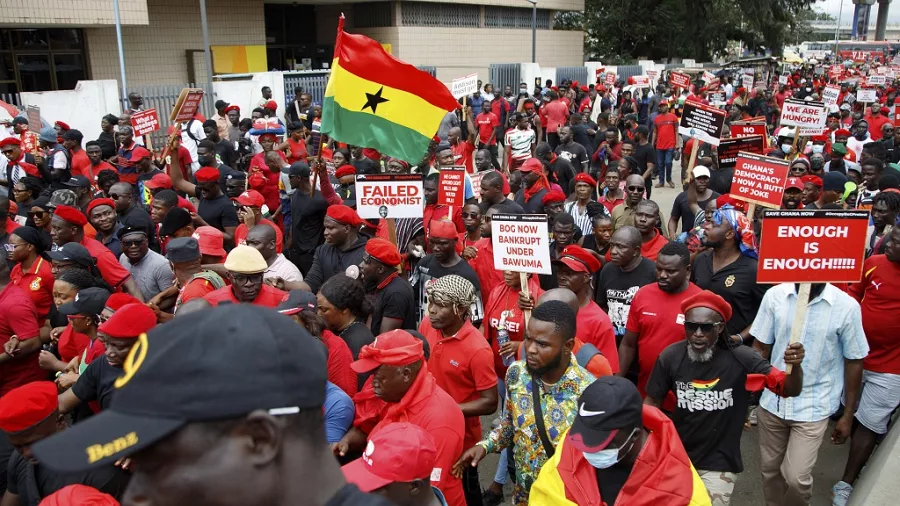
Thousands marched through Ghana’s capital Accra on Tuesday, demanding that the central bank governor, Ernest Addison, be dismissed for allegedly mismanaging the economy during the biggest debt crisis in a decade.
The protests are the latest expression of dissatisfaction with growing living costs, unemployment, and suffering in one of West Africa’s major economies. Last month, the capital was engulfed in multi-day protests.
The Bank of Ghana reportedly lost GH60.81 billion for the fiscal year 2022, raising serious questions about the bank’s administration and accountability. Furthermore, the bank’s plan to spend more than $250 million on the construction of a new headquarters has been questioned, particularly in view of the country’s present economic difficulties. Protesters are questioning the distribution of such large sums of money in the wake of massive financial losses.
Addison, who has been in the position since 2017 and has a two-year term remaining, stated last month that stronger economic indicators will soon translate to greater salaries and buying power.
However, a more stable currency, reduced inflation, and stronger GDP have not yet aided people trying to make ends meet.
The Minority Caucus in Parliament and the National Democratic Congress (NDC) are spearheading the demonstration, refusing to comply with police instructions and marching to the Central Bank’s premises to deliver their petition to the governor’s officials.
Samuel Okudzeto Ablakwa, Member of Parliament (MP) for North Tongu Constituency, is one of the Minority MPs coordinating the #OccupyBoG protest. He stated that they will pursue his prosecution following the resignation of the BoG Governor.
Ghana, a producer of gold, oil, and cocoa, has agreed to a $3 billion three-year credit package with the International Monetary Fund to assist alleviate the situation. One of the requirements for obtaining that money is debt restructuring.

